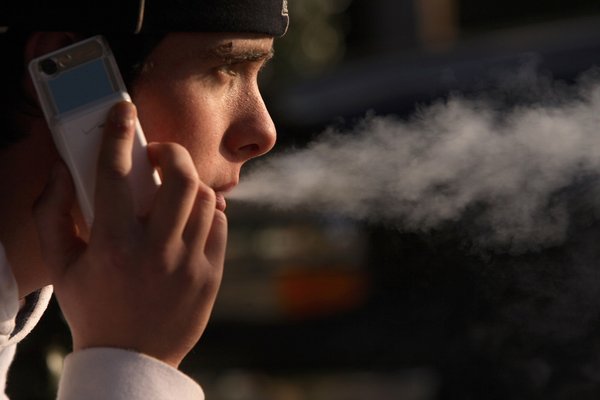Tobacco use still high in college ball, off field
USA Today
OMAHA, Neb. (AP) — Virginia pitcher Josh Sborz slips a pinch of chewing tobacco between his cheek and gum every now and then, even though the NCAA banned the substance 20 years ago,
“I enjoy the taste. It’s not like I’m addicted to it,” Sborz said. “I just enjoy it, definitely. I do it maybe once a month or every other week.”
Sborz said this week’s death of Hall of Fame baseball player Tony Gwynn might give college players some pause. Gwynn died at 54 of oral cancer believed to be connected to his long use of chewing tobacco.
“It should have an impact when such a star-studded player’s life was ended by the addiction he had. It’s sad,” Sborz said.
Whether Gwynn’s death has any real impact is an open question and it comes amid some concerns: Baseball players acknowledging using spit tobacco at least once in the previous month rose from 42.5 percent in 2005 to 52.3 percent in 2009, according to the NCAA’s quadrennial survey substance use trends among its athletes. Results of the 2013 survey have not yet been released, though preliminary results suggest a drop since 2009.
About 15 percent of teams in each NCAA sport are asked to participate in the anonymous survey, with a total sample size of about 20,000 athletes. Among all male athletes, 16 percent acknowledged using tobacco in 2005 and 17 percent in 2009.
Sborz said he thinks the survey is “skewed” when it comes to ball players.
“All those people don’t do it every day,” he said. “If people do it every day, that’s where it becomes a problem. If they do it once every week, I don’t see any issue with it.”
Minor-league baseball banned tobacco in 1993, a year before the NCAA. Tobacco is not banned in the major leagues.
Though tins of tobacco aren’t visible in college dugouts like they were before 1994, that doesn’t mean players aren’t dipping when they’re away from the ballpark.
“It’s 100 percent part of baseball culture,” said Virginia second baseman Branden Cogswell, who estimated half his teammates chew tobacco at least occasionally. “It’s kind of a habit for people, kind of a comfort thing. I’ve never been a part of that group, but so many guys do it. People take those risks. It’s their choice.”
Dave Keilitz, executive director of the American Baseball Coaches Association, said he was surprised to find out so many baseball players were using tobacco.
“I think most of our coaches, if not all of our coaches, are very aware of the danger and also don’t want their players using it,” Keilitz said. “In my 20 years of doing this, I haven’t seen any evidence of that taking place in dugouts, in games. I hope the same holds true in practice sessions.”
Keilitz said his organization adamantly opposes the use of smokeless tobacco and participated in the making of a video that illustrates the dangers.
Virginia coach Brian O’Connor said he chewed during his playing days in the late 1980s and early ’90s. Like Keilitz, he was surprised so many players acknowledge using tobacco.
“If kids are doing it, they’re doing a heck of a job of hiding it,” he said.
The NCAA said the ban was put in place as part of its charge to protect the safety and welfare of athletes. The penalty for violating the ban was left to the committee that oversees each sport. The Baseball Rules Committee instructed umpires to eject any player or coach who is using tobacco or who has tobacco in his possession. Enforcement was spotty until the committee made it a point of emphasis in 2003.
In spite of the warnings the players receive, Texas coach Augie Garrido said he knows some members of his team chew tobacco.
“There’s a lot more of it in Texas,” he said, “because it’s not only about the baseball. It’s about hunting, it’s about fishing, it’s about being a man.”
As for Sborz, he started chewing for a simple reason.
“I saw an older kid do it, so I thought I’d try to do it,” he said.

